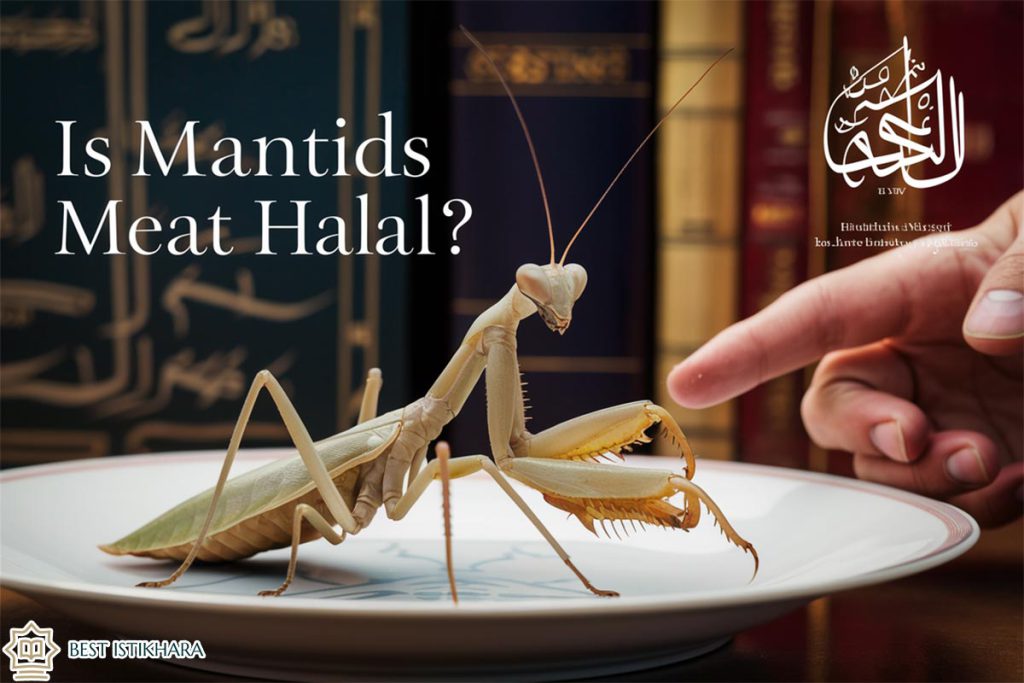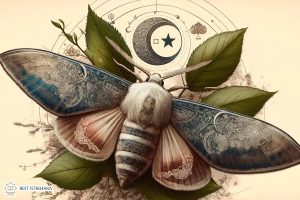Is Mantids Meat Halal?

As outlined in Islamic jurisprudence, Halal dietary laws dictate what foods are permissible (halal) or forbidden (haram) for Muslims to consume. These laws are derived from the Quran, Hadith (traditions of the Prophet Muhammad), and centuries of scholarly interpretation. They emphasize purity, cleanliness, and humane treatment of animals. Foods considered halal must meet specific criteria during their preparation, such as the invocation of Allah’s name during slaughter. The concept extends beyond meat to include all food production and processing aspects, ensuring adherence to ethical and religious standards that guide Muslim dietary practices worldwide. Click to get more information about halal vs haram topics discussed in today’s world.
What Are Mantids?
Mantids, commonly known as praying mantises, are an order of insects called Mantodea. They are characterized by their elongated bodies, triangular heads, and prominent, grasping forelegs adapted for capturing prey. Mantids are predominantly carnivorous and are known for their predatory behavior, often lying in ambush for their prey. They exhibit a wide range of colors and patterns, providing camouflage within their natural habitats, which include various regions across the globe, notably in tropical and subtropical areas like Southeast Asia.
Mantids have a complex life cycle that includes egg, nymph, and adult stages. The nymphs resemble miniature adults and undergo several molts before reaching maturity. These insects play a crucial role in the ecosystem as natural pest controllers, feeding on insects such as flies, crickets, and caterpillars. Despite their beneficial aspects in pest management, mantids can be both fascinating and somewhat eerie due to their predatory nature and the ritualistic post-mating behavior where females sometimes consume males.
Islamic Perspective on Eating Insects
The consumption of insects in Islam is a subject of scholarly debate, rooted in interpretations of the Quran and Hadith. Generally, Islamic dietary laws classify foods as halal (permissible) and haram (forbidden). While the Quran does not explicitly mention insects, several Hadiths provide guidance. For instance, the Prophet Muhammad is reported to have permitted the consumption of locusts, suggesting that some insects may be considered halal.
Different schools of Islamic jurisprudence (madhabs) have varied opinions on this matter. The Hanafi school generally discourages the consumption of insects, classifying them as makruh (discouraged) unless necessary. Conversely, the Shafi’i, Maliki, and Hanbali schools are more permissive, often considering insects halal if they are not harmful and are customarily consumed by people in certain cultures.
Scholars often cite the principle that what is good and wholesome is halal, and what is harmful or disgusting is haram. This principle leads to differing views on insects, as cultural perceptions of wholesome can vary. Therefore, while some communities might accept certain insects as halal, others might reject them based on local customs and interpretations.
Are Mantids Considered Halal?
The permissibility of eating mantids (praying mantises) in Islam is a nuanced topic, subject to interpretation by different Islamic scholars and schools of thought. Generally, the Quran and Hadith do not explicitly mention mantids, leading to varied opinions among Islamic jurists.
In the Hanafi school, there is a tendency to classify most insects, including mantids, as makruh (discouraged) unless there is a necessity for their consumption. This perspective is rooted in the broader principle that insects are not typically considered wholesome or desirable food.
Conversely, the Shafi’i, Maliki, and Hanbali schools offer more lenient views. These schools often consider insects halal if they are not harmful and are customarily consumed in certain cultures. Since mantids are not inherently dangerous and are eaten in some cultures, these schools might classify them as halal, provided they are prepared in a manner consistent with Islamic dietary laws.
Ultimately, the classification of mantids as halal or haram can depend significantly on cultural practices, scholarly interpretation, and individual dietary preferences. It is advisable for Muslims to consult local religious authorities or scholars to get a clear and context-specific ruling on this matter.
Debate Among Scholars: Diverse Opinions on Eating Mantids
The question of whether mantids are halal has sparked a diverse range of opinions among Islamic scholars. This reflects the broader debate on the permissibility of eating insects, which is influenced by interpretations of religious texts and varying cultural practices.
In the Hanafi school of thought, the consumption of mantids, like other insects, is generally viewed as makruh (discouraged). This stance is based on the principle that insects are not traditionally considered wholesome or desirable food. Hanafi scholars often cite the lack of specific mention of mantids in the Quran and Hadith as a reason for their cautious approach.
Conversely, the Shafi’i, Maliki, and Hanbali schools are more permissive regarding the consumption of insects, including mantids. These schools argue that insects are halal if they are not harmful and are customarily consumed by people. They reference the permissibility of locusts in Hadith as a basis for allowing other insects, including mantids, provided they are not toxic and are culturally accepted as food.
Some contemporary scholars emphasize the importance of local customs and the principle of necessity. They argue that if mantids are a common food source and are prepared in a halal manner, they can be considered permissible. This view highlights the adaptability of Islamic dietary laws to different cultural contexts.
Ultimately, the debate underscores the importance of consulting knowledgeable religious authorities who can provide context-specific guidance based on the interpretations of Islamic jurisprudence and local customs.
Conclusion
Whether mantids are halal involves a complex interplay of Islamic jurisprudence, cultural practices, and scholarly interpretations. While the Hanafi school generally discourages the consumption of insects like mantids, the Shafi’i, Maliki, and Hanbali schools offer more permissive views, considering cultural norms and the lack of inherent harm in these insects. The debate highlights the diversity within Islamic thought and the importance of context-specific rulings. For those seeking clarity, consulting local religious authorities remains crucial to align dietary practices with spiritual principles. This ongoing discourse underscores the adaptability and depth of Islamic dietary laws.




